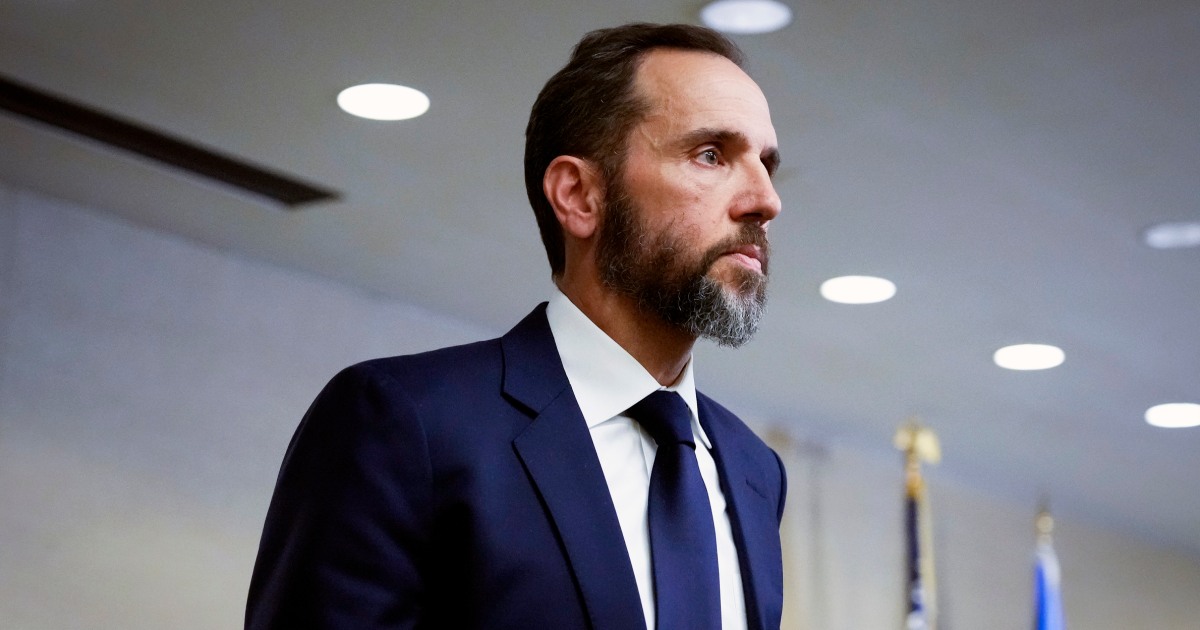Special counsel Jack Smith reportedly isn’t planning on seeking a so-called mini-trial in Donald Trump’s federal election interference case before the November election. I’ll explain what that means and why that isn’t the crucial issue in the broader context of the prosecution and Trump’s criminal cases generally.
The context that prompted speculation about such a hearing is the Supreme Court’s July 1 ruling in Trump v. United States, which laid out a vague test for presidential immunity that now falls to U.S. District Judge Tanya Chutkan to apply, to see how much of Trump’s indictment survives the high court’s ruling (an issue that may well return to the justices for review of her decision before any trial can happen). The question is how Chutkan will seek to accomplish that complex task: With just written briefs? With briefs followed by an expansive hearing featuring witness testimony?
It’s not clear yet. The parties have a joint status report due to Chutkan on Friday about how they want to proceed, after Smith notably requested more time to finalize the government’s position, with Trump’s team unsurprisingly agreeing to the further delay.
The parties have a joint status report due to Chutkan on Friday about how they want to proceed, after Smith notably requested more time to finalize the government’s position, with Trump’s team unsurprisingly agreeing to the further delay.
Ahead of that status report coming due, Bloomberg News reported Friday that Smith “has decided against seeking a major hearing to present evidence in the election-interference case against Donald Trump before voters go to the polls,” and The New York Times similarly reported that federal prosecutors “now appear unlikely to seek a broad public airing of their evidence in a courtroom before Election Day.” The reports, which cited people familiar with the matter, have not been independently confirmed by NBC News or MSNBC.
But if true, this news isn’t too surprising. After the immunity ruling, it became even clearer that no Jan. 6 trial was going to happen before the election. As shown most recently by Smith requesting more time to determine his position on how to proceed, the government seems to understand that there’s no use in rushing now.
So what’s the public missing out on if there isn’t such a hearing before the election? One answer seems to be that voters could learn even more about Trump’s actions after the 2020 presidential election that led to the indictment. (He has pleaded not guilty.)
But Jan. 6 isn’t a whodunit. Whatever happens in this criminal case, Trump’s behavior that day is well documented and has been broadcast for all to understand. A federal court hearing (which wouldn’t be televised, by the way) could add more details, but anyone inclined to pay attention has long had abundant information available to them that should make the matter clear for electoral purposes, one way or the other. Perhaps it would be worse politically for Trump if, in the days leading up to the November election, there were additional daily reports of his antidemocratic behavior on this score. But that political issue isn’t the issue in court.
But Jan. 6 isn’t a whodunit. Whatever happens in this criminal case, Trump’s behavior that day is well documented and has been broadcast for all to understand.
The bigger legal issue is that if Trump wins the election, then his federal cases are as good as gone. (Smith is separately appealing U.S. District Judge Aileen Cannon’s dismissal of the former president’s federal classified documents case, to which Trump has also pleaded not guilty, with Smith’s appellate brief due Tuesday.) Voters are free to consider that electing Trump again would mean that he’d never face federal criminal trials for Jan. 6 or his allegedly unlawful retention of classified documents and obstruction. (With state cases, presidents can’t dismiss them or issue pardons; Trump’s lawyers are arguing that the immunity ruling should cause his New York guilty verdicts to be reversed, while his Georgia state case, in which he has pleaded not guilty, is tied up on a pretrial appeal unrelated to immunity.)
And the immunity ruling isn’t the only recent high court decision implicating how Trump’s case in Washington moves forward. Another one that Trump’s lawyers will press is Fischer v. United States, in which the court narrowed obstruction charges for Jan. 6 defendants. Two of Trump’s four charges in his Jan. 6 indictment are obstruction-related, so even if the Fischer case doesn’t upend Trump’s prosecution to the extent that the immunity decision has and will, it’s yet another issue potentially complicating the case. Again, the case becomes uncomplicated if Trump wins the election, because he’d then be empowered to get rid of the case.
In the meantime, of course, it isn’t fully up to Smith or Trump how the case proceeds. It’s up to the judge. We should learn more about where the case is headed when we see the report on Friday, with a status conference set for next week, on Sept. 5, that could shed more light on what’s next.
Subscribe to the Deadline: Legal Newsletter for updates and expert analysis on the top legal stories. The newsletter will return to its regular weekly schedule when the Supreme Court’s next term kicks off in October.


Leave a Reply